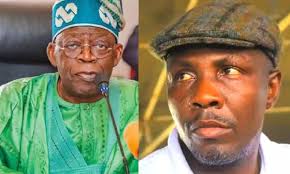Editorial
Endless Economic woes in Nigeria (Editorial)

Editorial
Certainly! Nigeria, often referred to as the “Giant of Africa” due to its large population and economy, faces a myriad of developmental challenges. These challenges are multifaceted and interconnected, impacting the country’s socio-economic growth and overall development. Below are some of the key developmental challenges Nigeria faces:
1. Economic Diversification and Dependency on Oil
Nigeria’s economy is heavily reliant on oil exports, which account for a significant portion of government revenue and foreign exchange earnings. This dependency makes the economy vulnerable to fluctuations in global oil prices. Efforts to diversify the economy into sectors like agriculture, manufacturing, and services have been slow and challenging.
2. Corruption and Governance
Corruption remains a pervasive issue, undermining good governance and public trust. It affects all levels of government and sectors, leading to misallocation of resources, inefficiency, and stunted economic growth. Efforts to combat corruption have yielded mixed results, with many anti-corruption initiatives encountering resistance.
3. Infrastructure Deficit
Nigeria suffers from a significant infrastructure deficit, including inadequate roads, power supply, water, and sanitation facilities. Poor infrastructure hampers economic activities, increases the cost of doing business, and reduces the quality of life for citizens.
4. Security Challenges
The country faces numerous security challenges, including terrorism (mainly from Boko Haram in the Northeast), banditry, kidnapping, and communal conflicts. These security issues disrupt economic activities, displace populations, and create a climate of fear and instability.
5. Education System
Nigeria’s education system is plagued by underfunding, poor infrastructure, inadequate teaching materials, and a shortage of qualified teachers. These issues contribute to low educational attainment and high dropout rates, particularly in rural areas and among girls.
6. Healthcare System
The healthcare system in Nigeria is under-resourced and struggles with inadequate facilities, shortage of medical personnel, and poor health infrastructure. This results in poor health outcomes, high maternal and child mortality rates, and limited access to essential health services, especially in rural areas.
7. Poverty and Inequality
Despite being one of Africa’s largest economies, a significant portion of Nigeria’s population lives in poverty. Income inequality is also high, with a considerable gap between the wealthy and the poor. Poverty is more pronounced in rural areas and the northern regions of the country.
8. Environmental Degradation
Nigeria faces severe environmental challenges, including deforestation, desertification, pollution (particularly in the Niger Delta due to oil spills), and climate change impacts. These environmental issues affect agriculture, livelihoods, and overall sustainability.
9. Population Growth
Nigeria has one of the highest population growth rates in the world. Rapid population growth exerts pressure on resources, infrastructure, and social services, complicating efforts to achieve sustainable development.
10. Political Instability
Frequent political changes, ethnic tensions, and regional disparities contribute to instability. Political instability can deter investment, disrupt development programs, and lead to policy inconsistency.
11. Youth Unemployment
With a large and growing youth population, Nigeria faces high levels of youth unemployment and underemployment. This not only wastes human potential but also contributes to social unrest and economic inefficiencies.
Conclusion
Addressing Nigeria’s developmental challenges requires a multifaceted approach that includes economic diversification, improved governance, investment in infrastructure, enhanced security measures, better education and healthcare systems, and targeted poverty alleviation programs. Sustainable development in Nigeria will also depend on effective policies, concerted efforts from both government and private sectors, and international cooperation.
By Congress Newspaper!













